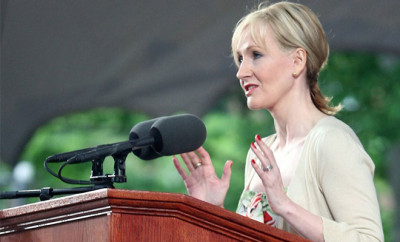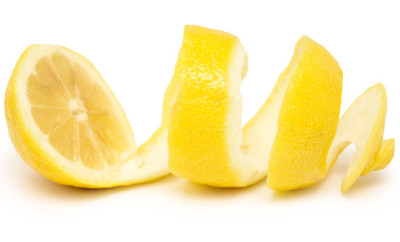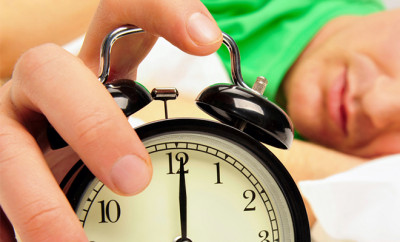
The Final Word about Self-Esteem
I have never written an article on “the final word about” anything. Nothing. Zip. Nada. But now I am boldly daring to write one. I know it is audacious. I know that it is perhaps an act of rash boldness, but I will let you be the judge of that when all is said and done. Now about this strange and illusive state of self-esteem, about this highly desired prize and this poorly misunderstood subject, I think I can write the last word about it. At least that’s my hope. Not my expectation, just my hope. So, if you’re game for the ride, here we go.
Demystifying the Confusions of Self-Esteem
First we’re going to have to do some major demystifying of the term itself. And they are major. For starters, most people confuse self-esteem with self-confidence. If they don’t make that mistake, they make another one. They confuse self-esteem with feeling good about oneself or feeling a sense of dignity from the recommendations and approval of others. Yet none of these descriptions refer to self-esteem.
The key, of course, is the verb esteem. To esteem something is to make an appraisal. It refers to the value that we attribute to something or someone. That’s what a house appraiser, a diamond appraiser, and an antique appraiser does. So esteem when applied to the self refers to our sense of personal worth and value. Okay, let’s start there. So, what are you worth? What is the worth of a human being? And does your human worth go up and down like the Dow Jones Stock Exchange? Do you need to check in with the self-market at the end of each day to see how you did and if your worth went up or if it was deflated throughout the day?
Now if you are going to answer the question, “What is the value of a human being?” you have to apply some kind of scale it to, some standard, and some criteria. So what is your standard? How should we make the evaluation about the value or worth of a human being? Let’s see…culturally there’s all kinds of criteria that we could use. We could use looks, brains, accomplishments, strengths, money, brand name clothes, fashion, book smarts, quickness, gift of gab, friendliness, popularity, being in the know, and on it goes.
So what do you think? Do you want to use any of these criteria for judging and evaluating the worth and value of yourself, others, or human beings in general? If you do, then the value of a human being will be conditional. And this is what most people do. They evaluate themselves and others based on achievements, money, age, looks, strength, etc. Of course, any conditions that you use to make your appraisal on, puts you on a treadmill— a treadmill of conditionality so that people do not have value and worth per se, but only when they meet certain conditions.
There is an alternative. Instead of making our evaluations of worth based on temporal conditions, conditions that come and go that change, that do not last, and that can be taken away from us, we could make the evaluation of human worth as unconditional. We could make a declaration that people already have value; value and dignity, and operate from that appraisal.
Why not? Why not start from unconditional value and worth so that your person as a human being does not have a floating index of worth, but that the worth is a given, built-in, and therefore secured?
Now I’m speaking of you as a person, as a human being. And that’s different from you as a performer, a doer, an achiever, and of you in terms of all of the various factors and facets of your life: looks, energy, health, career, money, age, etc. All of these things are conditional and you can evaluate how you are doing in any of those domains by whatever standard you like to use and when you do, you have another facet of you. You have your confidence in yourself in these areas. You have your self-confidence in making money, making friends, solving problems, getting along with neighbours, impressing people with your knowledge, with your looks, with your sexuality, and a thousand other things. That’s self-confidence, not self-esteem.
So here’s the first demystification. Self-esteem is about you as a person and self-confidence is about what you can or cannot do. It is about you as a human doing, not a human being. It is conditional. Whereas self-esteem works best as unconditional.
Second Demystification
Only you can self-esteem yourself. That’s why it is self-esteem. It is not other-esteem. That’s others liking, valuing, appreciating, and approving of us. And while we all like that, we have also seen and heard of numerous movie stars, millionaires, and others who “had it all”—had all of the fame and prosperity and recognition a person could want (other-esteem), but because they did not apply to self and engage in self-esteem, they ended it all with suicide.
So, only you can esteem yourself. And given that it is an appraisal that you make in your mind, you can esteem yourself and give yourself high self-esteem at any moment that you so choose. You don’t have to wait for anything. In fact, there’s nothing to wait for. It is a declaration. It is a decision.
If you want a healthy sense of self, you start here. You distinguish between your decision and declaration that you are worthy, that you are a somebody, that you were born a human being and waiting for the feelings of worth, value, and dignity to catch up. They will, but they typically take some time. In the meantime, celebrate yourself as having worth and value. Refuse and refuse stubbornly to ever put yourself on the line and go back to conditional self-regard.
In the meantime, begin updating all of your mental maps about your concepts of self. Map that you are a Somebody already and don’t have to prove a thing. Create a mental belief that your whole life now is to be lived an expression of your Somebody-ness.
Doing these things takes your self-esteem off the line so that it cannot be taken away from you or even up for question. It is unquestionable now. It is simple. When you don’t do that then you will be tempted to personalise things, feel like a nobody, and feel that you have to prove yourself in order to have the right to live and even to be. Stop that nonsense. It’s un-sane and it will drive you insane. It will only make you reactive, defensive, and thin-skinned.
Every day practice refreshing your mental map that you are a valuable Person, and that as a living sacred self, you are innately valuable, worthwhile, and have dignity as a member of the human race.
Say to yourself:
“I am a Somebody already.”
“I have nothing to prove and everything to experience.”
Repeat these words until you believe them and send them as commands to your nervous system (see “The Magical Nature of Beliefs” on www.neurosemantics.com).
Doing that will free you to be and to become, to explore and to enjoy the offerings of life. Paradoxically, it will move you so that you get beyond yourself and so that you transcend your ego. Then you’ll find that life is bigger than you and you get to play in the experience that we call life.
With that self-esteeming in place, you will then be able to explore your potential; you can open up in a responsive way to love, to learning, and to developing. You can be more caring and loving in relationships, non-defensive about mistakes and vulnerability, and more creative with your skills and passions. When the ego is not on the line, you will have nothing to prove.
Now the matter with Self-Confidence
Self-confidence differs from self-esteem in that it is not about yourself as a person, but what you can do—your abilities, skills, and achievements. Unlike self-esteem which is unconditional and a given; self-confidence is completely conditional. You have to develop skills and earn the right to say that you have confidence that you can do something.
You earn self-confidence through using your gifts and by becoming competent in what you can do and achieve. If you ever claim self-confidence about something in which you are actually unskilled and incompetent, you only fool yourself. It may feel good, but your confidence is mistaken. It is false. Accurate self-confidence is based upon your faith in (“con” and “fideo” faith) yourself, faith that you can pull something off and accomplish it.
Of course we all have strengths and weaknesses. We have aptitudes and predispositions in which we can more easily excel and those in which we do not. Playing to our strengths enables us to find those areas and tasks at which we have a natural disposition and can become highly skilled and contribute the most. This is a key secret of success in life.
So What about Ego-Strength?
The word ego simply refers to self. That’s all. It means and is translated from Greek as “I” or “me”. In itself, the word ego is neutral and carries no positive or negative connotations. So ego-strength is the strength and energy you have within yourself—in your mind, emotions, body, relationships, skills, etc. that allows you to face reality as it is and deal with it in an effective way. Without ego-strength you cave in, give up, or go into fight/flight responses of defensiveness.
In this we develop ego-strength as part of the process of growing up and developing. We call this healthy ego-development. That’s because we were born without an ego. Then, as our sense of self developed as we grew up, we began to develop a certain strength in our ability to face reality. At first our ego was very fragile. We had no ego-strength. This takes time to develop. A fragile ego leads us to easily become ego-involved in things. Our early childish thinking made us very egocentric. This isn’t a moral description, but a description of how small our world is. It revolved entirely around us.
There you have it!
Here is the last word about self-esteem. Yes, you’ll have to keep distinguishing yourself as a human being and as a human doing, and depending upon your old habits of mind and emotion, you may have to do it everyday for a month or more. Yet if you do, as you correct your self-talk about your “worth” and begin to sacrilise yourself as an inherently and unconditionally valuable human being who has nothing to prove and everything to experience—you will incorporate and embody the feeling of dignity so that you feel it in every cell and neuro-pathway and it will be your basic orientation in the world.
Do that and you will win the inner game of self-esteem, then the outer game of living with dignity, worth, and personal value will be a cinch. The outer game of feeling like an innately valuable human being is won in the inner game. Here’s to your best inner game!








1 Comment